If you’re looking to integrate medicinal plants into your life, herbalizing your kitchen is an essential part of bringing herbalism alive. Fortunately, getting medicinal herbs into every meal is really easy. What you want to do is make herbal salt…
Most people eat salt every day, so if you’re going to eat salt, you might as well eat herbal salt! With herbal salt, you are bringing the depth of nutrition, digestive support, and everything that the carminative herbs can do for you when you eat them.
This herbal kitchen hack changed the center of gravity in my household, and I have heard hundreds of stories over the last 30 years from my students, clients, and people just saying, “Wow, that was so simple!”
What is the Healthiest Salt to Use?
I get this question a lot: Is herbal salt good for you? If you’re going to eat salt, you want it to be good salt.
We’re not using table salt, which is processed down to just sodium chloride. All the minerals have been stripped away from table salt. Sodium chloride causes inflammation and heart disease, so it’s not good for you.
Use a good, whole salt. I use Himalayan salt or pink salt, as well as Eden sea salt and hand-harvested French Celtic salt. There are lots of different kinds of good salt, and the difference is they’re not processed and they’re full of minerals.
When you start eating salt like this, you use less. By eating a mineralized whole salt with herbs, you use less because there’s just so much flavor.
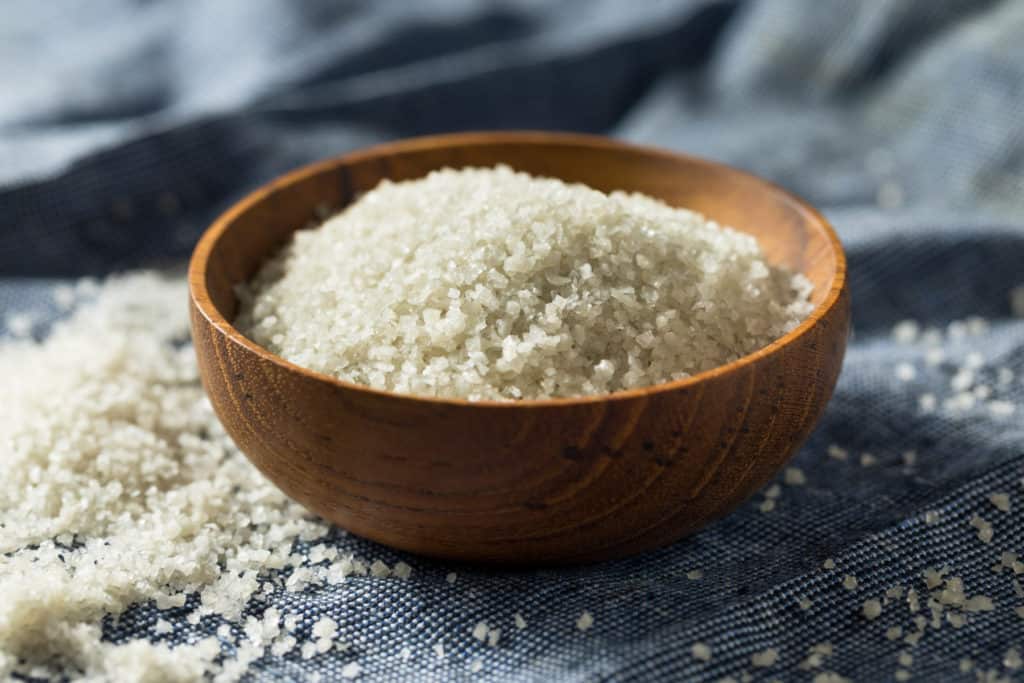
Herbal Salt Benefits
I always have a Lazy Susan on my kitchen table with more than one kind of herbal salt. There are a lot of herbs that you can make herbal salt with that are amazing, such as:
- Basil
- Coriander
- Ginger
- Lemon peel
- Orange peel
- Parsley
- Rosemary
- Sage
- Thyme
These culinary herbs are incredible carminatives. They help us to digest our food and restore and build the health of our digestive tract. We’re living with pesticides, herbicides, and medications that disrupt our gastrointestinal flora. By having carminative herbs at every meal, you’re building digestive health.
Orange peel salt is one of my favorite herbal salts. Dried orange peel is good for congestion and stagnation. It warms up the digestive tract and helps your body to process fats and move excess congestion of the body.
I also love lemon salt, which is good in marinades. Dried lemon peel has a mucilaginous quality, so it’s very nourishing and nurturing. You can use your lemon peel with the pith and all. The pith has inulin, a prebiotic that helps to support your gut biome.
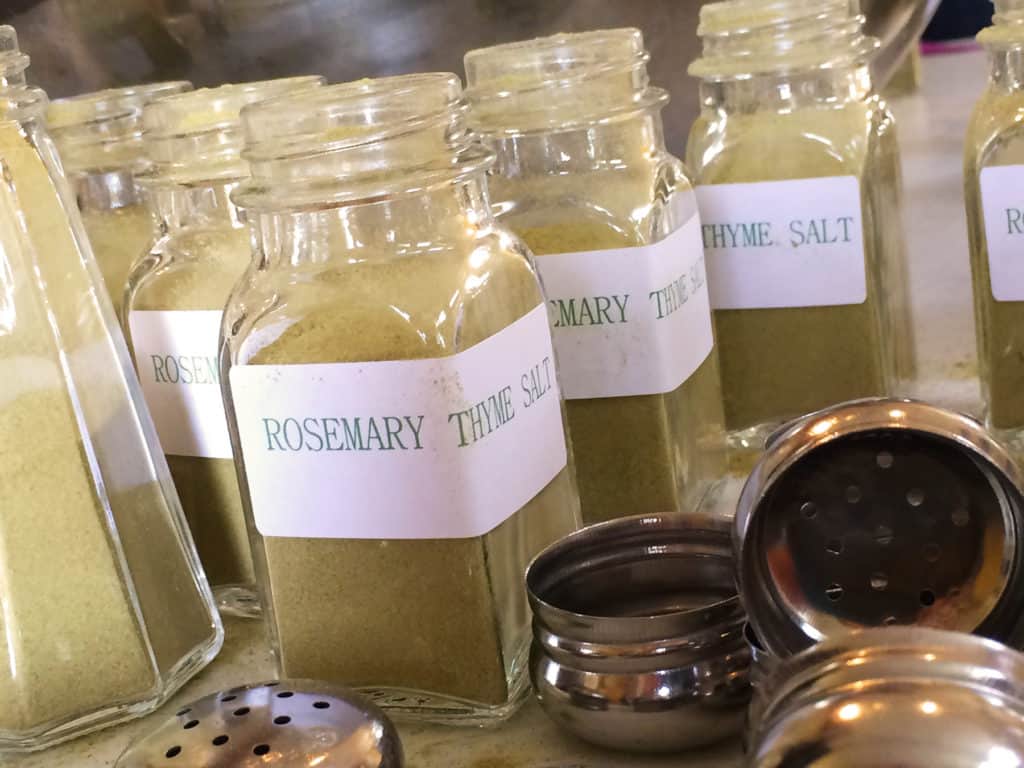
How to Make Herbal Salt
When you make your herbal salt, you want to use dried and finely powdered herbs. Some herbs, like basil, oregano, and thyme, are easy to powder yourself in a blender.
However, for more dense seeds and roots, such as coriander and cumin, most home blenders won’t powder them super fine. This is one situation where I will order powdered herb instead of powdering it myself. You can order pre-powdered herbs at Mountain Rose Herbs.
Making herbal salt is very simple. Simply mix your powdered herbs together with salt and store it in a saltshaker. (This also makes an incredible gift!)
These are a few of my favorite blends:
- Rosemary Salt: ½ part powdered rosemary + ½ part salt (also check out my recipe for Rosemary Thyme Salt)
- Coriander Salt: ½ part powdered coriander + ½ part salt
- Ginger Salt: ¼ part powdered ginger + ¾ part salt; we put this blend on our popcorn
- Citrus Salt: ½ part powdered orange or lemon peel + ½ part salt; delicious in marinades and on chicken, tuna, vegetables, and all kinds of grains
Adding medicinal plants to our meals is about infusing herbs into the things that we already eat on a daily basis, such as our condiments and pantry staples. Let’s take the herbs and spices out of the back of our spice cabinets and put them on our kitchen tables in the form of herbal salt!
Ready to seriously herbify your kitchen pantry? Check out My Herbal Kitchen
I would love to hear from you! How do you get medicinal plants into your everyday meals? Have you ever made an herbal salt? Please share in the comments below.
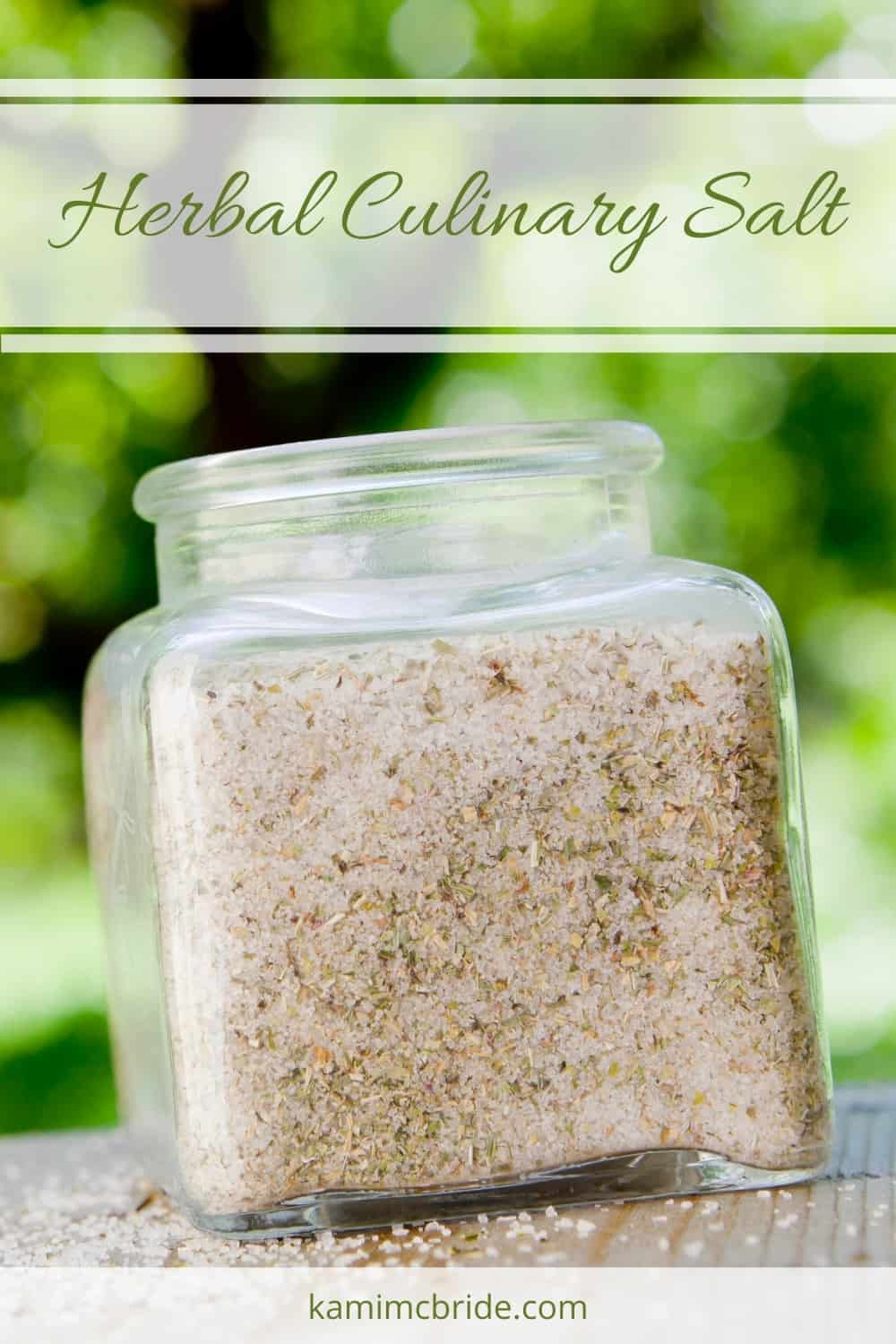

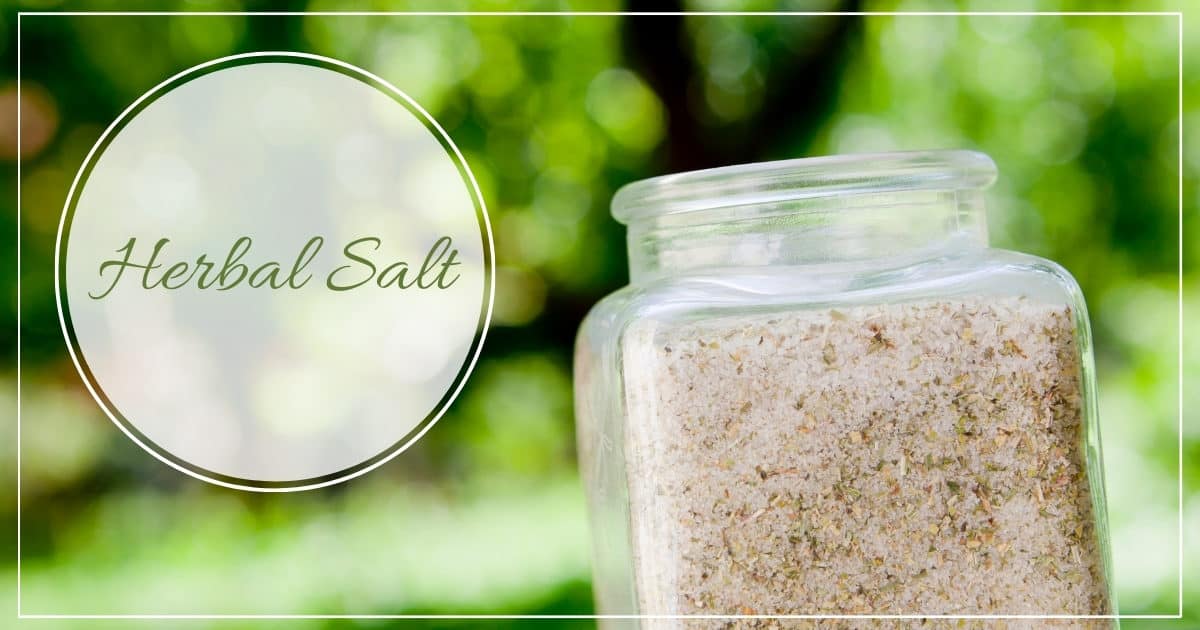
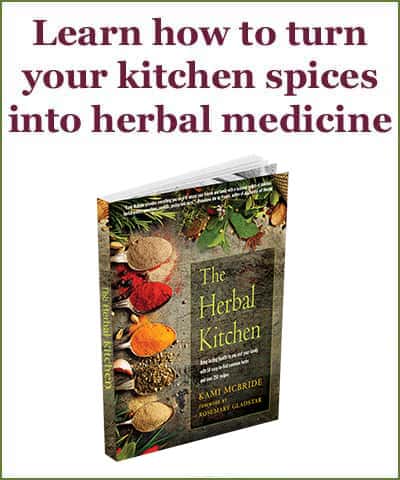
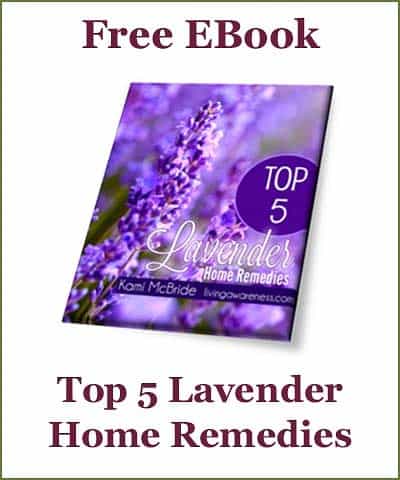
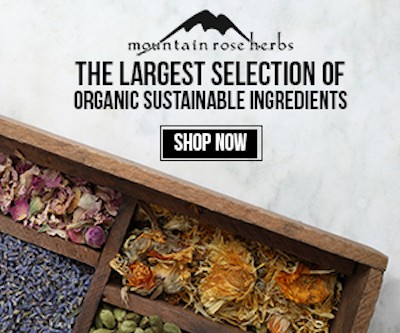
I really like the idea of adding herbs to sea salt or Himalayan salt.It adds added flavor to food and the herbs are usually healthy too. Great idea! Thank you Kami.
I have a Citrus Salt and a Sage Calendula Salt. Use them both frequently. I also make my own garlic salt and onion salt.
I grow so many of these herbs. Thank you so much for this- I can’t wait to make some of these. One of the many reasons I follow you🥰
Much appreciated. Thank you
I made salt blends for our local Farm to School and Slow Food event this summer. The possibilities are endless. I made pineapple-jalapeno, lovage, beet-ginger, carrot & garden greens, red wine & pepper cress, mushroom, and blackberry-thyme. You can’t go wrong! My favorites are probably mushroom, lovage and the blackberry….oh that color!
Very creative, love it!
With your blackberry/thyme salt do you the blackberry or do you use the leaves?
Thanks for this, use herbs in my cooking never thought to make a salt
Been making rosemary and lemon zest salt for a while as an easy popular holiday present. I don’t powder the rosemary or the dried zest because it looks much more beautiful when you can still see the “needles”. It works really well as a meat (or tofu) rub or can be used on roast potatoes and creates a great aroma while cooking.
This is a wonderful idea Kami! Thank you!
Fall is coming and I love to create cozy meals…Ill be trying out the rosemary!